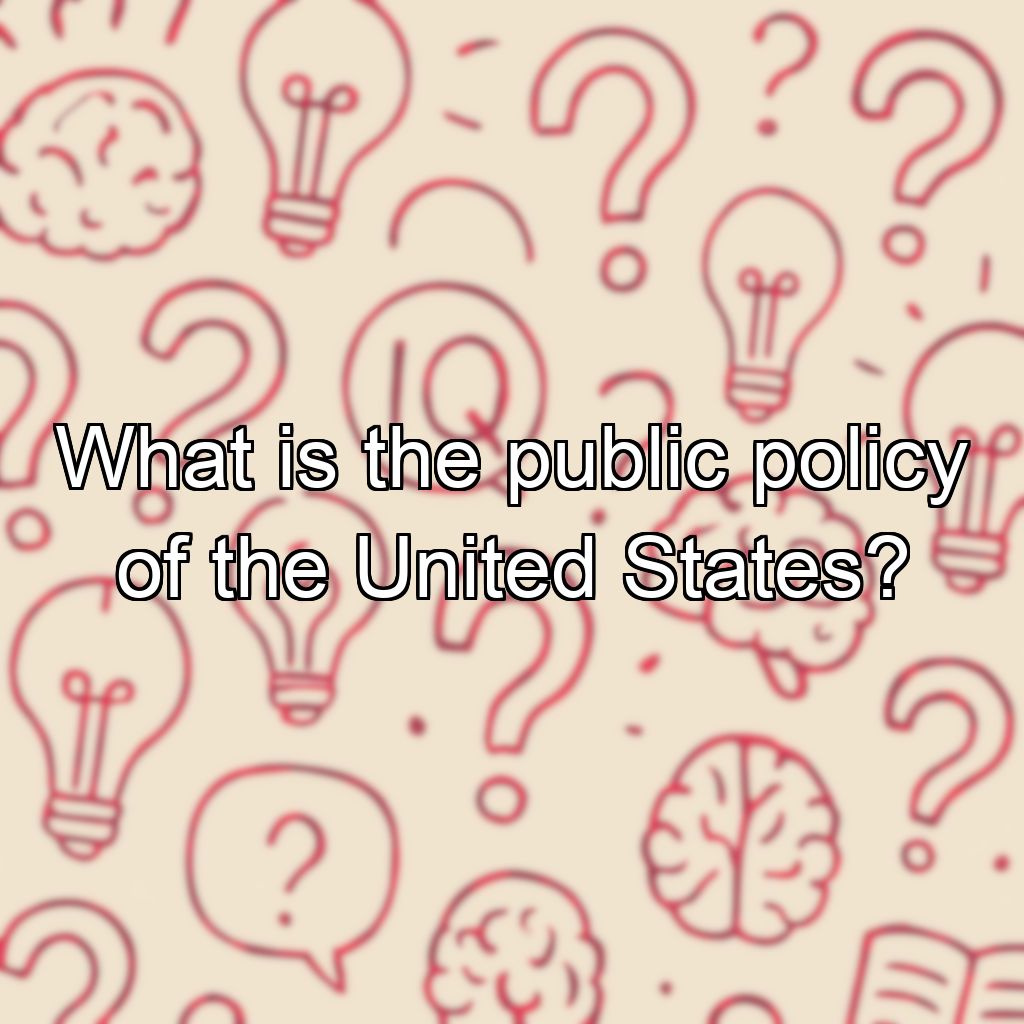What is the public policy of the United States?

United States Public Policy
Public policy in the United States refers to the system of laws, regulations, actions, and priorities set by the government to address issues affecting the public. These policies are developed and implemented at federal, state, and local levels, reflecting the nation's values, goals, and responses to societal needs.
Main Areas of U.S. Public Policy
- Economic Policy: Includes taxation, government spending, regulation of markets, and monetary policy managed by the Federal Reserve.
- Social Policy: Addresses education, healthcare, welfare, housing, and civil rights.
- Foreign Policy: Governs the country's interactions with other nations, including diplomacy, trade, and national security.
- Environmental Policy: Covers regulation and protection of natural resources, climate change responses, and pollution control.
- Criminal Justice Policy: Encompasses law enforcement, judicial processes, correctional systems, and crime prevention.
How Public Policy is Made
- Legislative Process: Congress (Senate and House of Representatives) passes laws that set or change policy.
- Executive Actions: The President and federal agencies implement and enforce laws through executive orders, regulations, and guidelines.
- Judicial Review: Courts interpret laws and can influence policy through their rulings.
Public Policy Goals
- Promote the general welfare and safety of citizens
- Protect individual and collective rights
- Support economic growth and stability
- Ensure justice and equality
Public policy in the U.S. is dynamic and influenced by political parties, lobbying groups, public opinion, and ongoing societal changes.